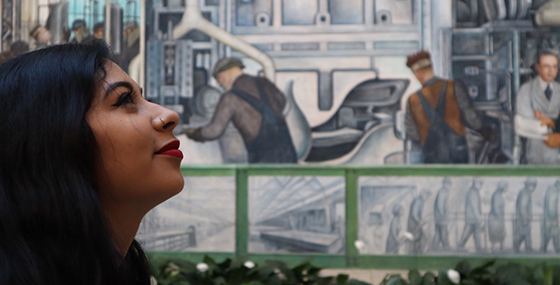Film Screening/Discussion
Krzysztof Wodiczko: The Art of Un-War
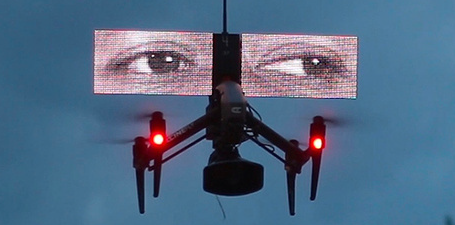
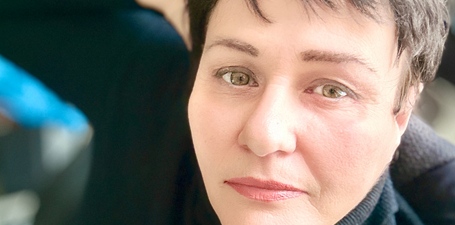
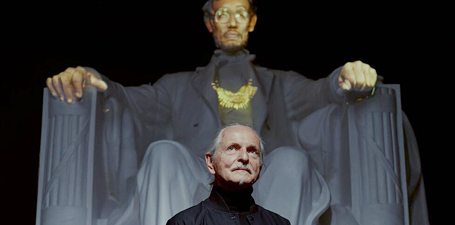
Friday, April 12 at 1:30 p.m.
Toledo Lucas County Public Library, Main Branch, McMaster Center
The University of Toledo Department of Art and the UToledo Roger Ray Institute for the Humanities will host a screening the film, Krzysztof Wodiczko: The Art of Un-War. The event will include a dialogue with the filmmaker, Maria Niro, and Wodiczko, the artist featured in the film. The screening and discussion are supported by an Ohio Humanities Spark Grant awarded to the department and the institute. Admission and parking (in the garage behind the library) are free and open to all.
This program has been made possible in part by the National Endowment for the Humanities: Democracy demands wisdom. Any views, findings, conclusions, or recommendations expressed in the program do not necessarily represent those of Ohio Humanities or the National Endowment for the Humanities.
Lecture
The War in Ukraine: Reflections on Two Years of Conflict
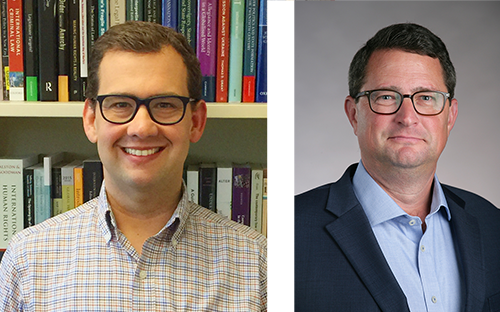 Speakers:
Speakers:
Dr. Joel Voss
Associate Professor of Political Science, UToledo
Dr. Barry Jackisch
Associate Professor of History
Wednesday, Feb. 28, 2024, 6-8 p.m.
Toledo Lucas County Public Library, Main Branch (Downtown Toledo) (map)
As we approach the second anniversary of the Russian invasion of Ukraine, two University of Toledo professors discuss the current state of the war, the impact of the war on both people and the international community, and potential outcomes of the war and its implications.
Past Events
Committed to diversity, equity and inclusion
The University of Toledo is committed to building and supporting a diverse, vibrant and inclusive campus community. The Office of Diversity, Equity and Inclusion works to ensure every member of the UToledo community feels included, respected and free from discrimination based on race, national origin, religion, beliefs, age, socio-economic status, gender, sexual orientation, gender identity or disability. The UToledo Roger Ray Institute for the Humanities supports this effort wholeheartedly in our programs and the support of our students. Below are additional helpful resources.
Office of Diversity, Equity and Inclusion University Strategic Plan for Diversity CAL Diversity Resources
UTOLEDO LAND ACKNOWLEDGMENT STATEMENT
The University of Toledo acknowledges that the region of Ohio in which the University sits is the ancestral homelands of the Seneca, Erie and Odawa, as well as places of trade for Indigenous peoples, including the Anishinaabe (ah-nĭsh-ĭ-NAH-bay) (Ojibwa, Pottawatomi), Kilatika, Lenape, Kaskaskia, Kickapoo, Miami, Munsee, Peoria, Piankashaw, Shawnee, Wea and Wyandot. As a steward of public lands, it is our responsibility to understand the history of the land, the peoples who came before us and their continuing ties to this place. We thank them for their strength and resilience in protecting this land and aspire to uphold our responsibilities according to their example.



